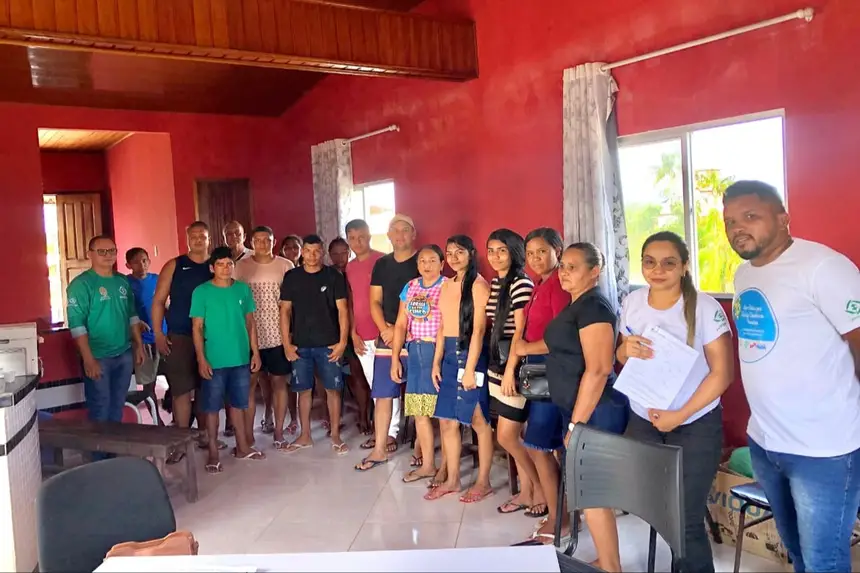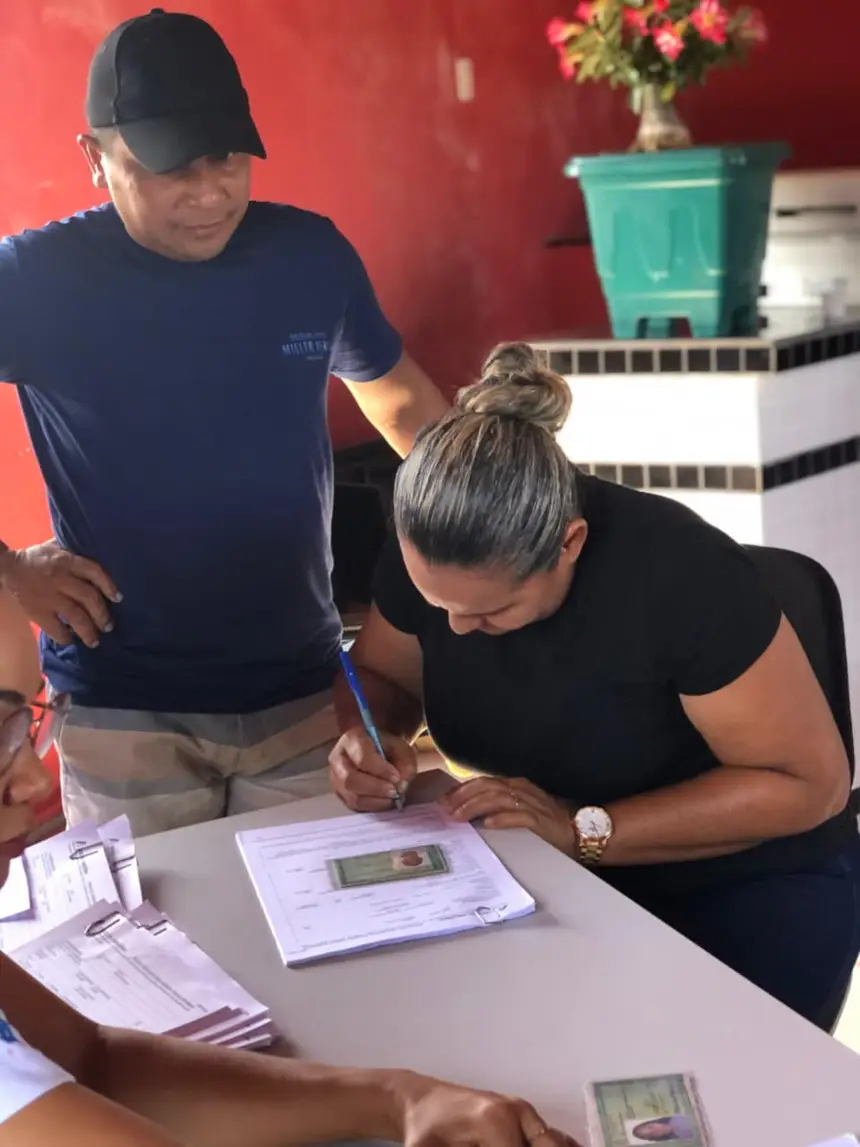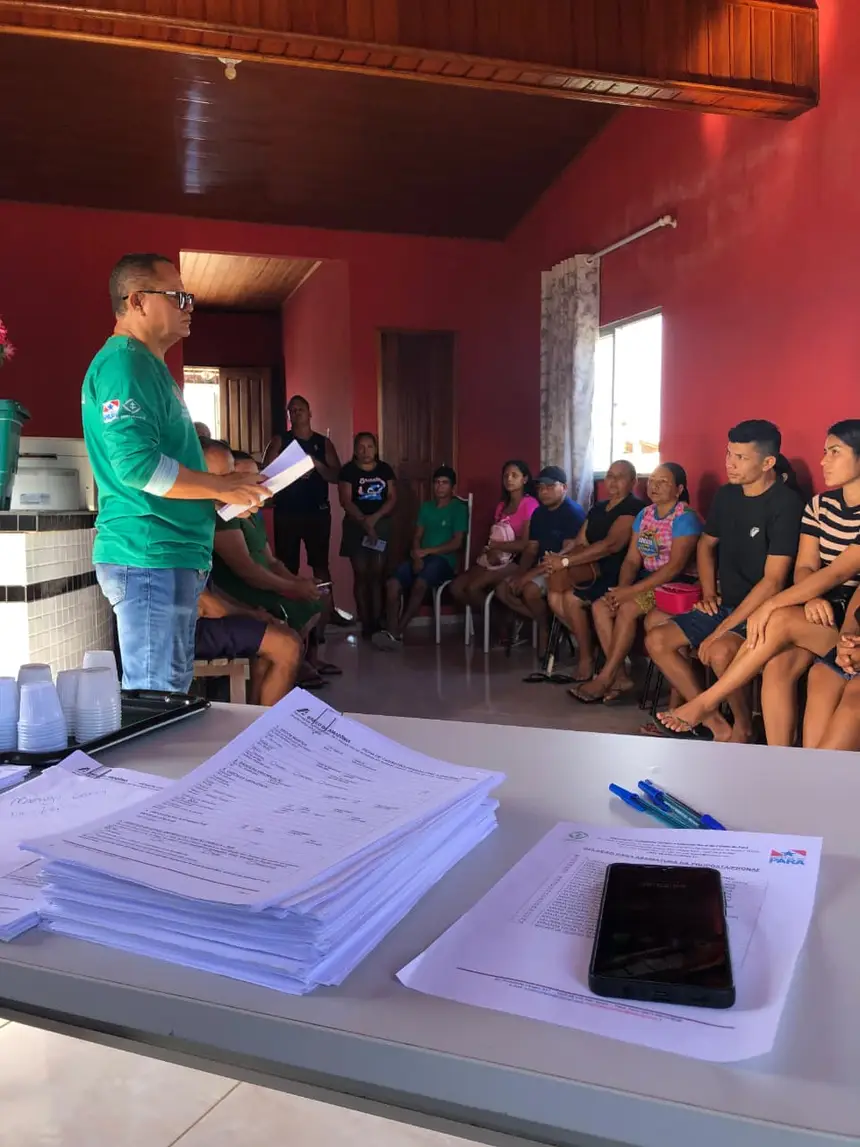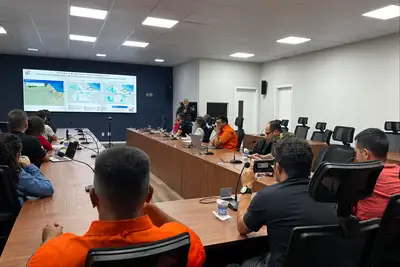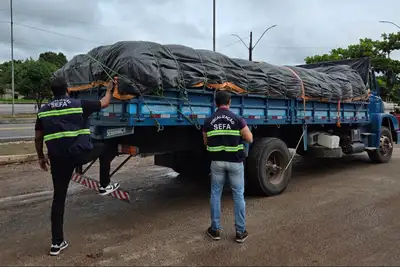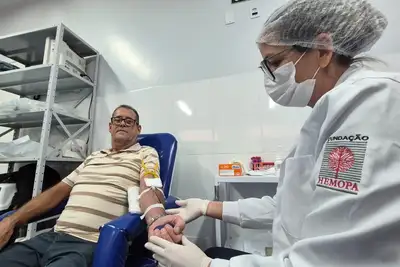Emater supports access to rural credit for açaí extractivists in Bagre, Marajó
The Technical Assistance and Rural Extension Company of Pará (Emater) contributes to improving production and increasing income for rural workers
Single mother of two children and açaí producer, Nielma Liarte, a resident of the Tiririca community in the municipality of Bagre, Marajó, turns 26 years old this Wednesday, October 8, with a special birthday gift: rural credit of nearly R$ 40 thousand, through a project developed by the local office of the Technical Assistance and Rural Extension Company of Pará (Emater).
“I really feel gifted. This is my first rural credit, and I believe it will be the first of many. With the money, I will expand the productive area, which is already considered very prosperous and beautiful, and intensify management,” she says about Sítio Dois Irmãos, named in honor of her two children: Thaís, 9 years old, and Lucas, 11 years old. On the property, at the peak of the harvest, the extractivist can collect almost half a ton of açaí per weekend.
The family's income is supplemented by selling clothes to the riverside community along the Tiririca River, on a small boat. “I go alone, around here, and I sell women's and children's clothing. It’s a set of battles: the açaí harvest, for example, is done by me, climbing the palm trees, and I also hire other workers to help,” she details.
Collective Sustainability
Nielma Liarte is one of 34 families in Bagre, including land reform settlers, who on Monday (6) signed contracts for the National Program for Strengthening Family Agriculture (Pronaf) with the Bank of the Amazon (Basa), through projects from Emater.
Individual amounts range from R$ 39 thousand to R$ 52 thousand, with a total of R$ 1.5 million, for managing floodplain areas between three and four hectares in nine communities. With interventions guided by Emater specialists, the expectation is that, in two years, açaí productivity there will increase by up to 80%, consolidating food security and increasing income.
“First of all, it is necessary to improve the quality of life for these families - many in situations of socioeconomic vulnerability, depending on family allowances and unemployment insurance. Açaí has always existed as a leading activity; but with credit, it is strengthened as a profitable and sustainable activity in the long term, for present and future generations, through access to technology and modernization,” explains Marinaldo Lobato, head of the local Emater office in Bagre, an agricultural technician.
Text by Aline Miranda



